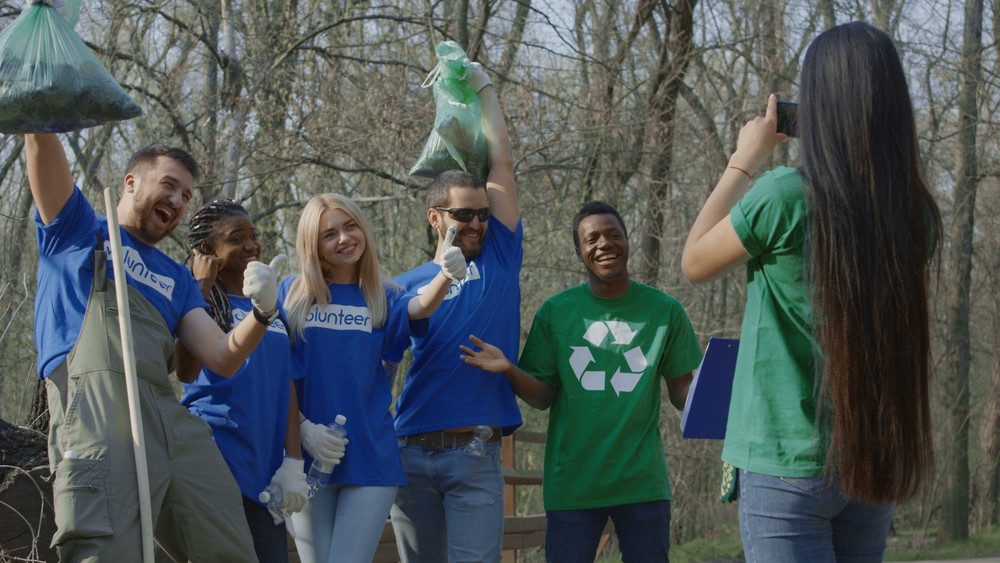How Can We Do More to Recycle Effectively?

Recycling is an essential practice in reducing waste, conserving resources, and promoting environmental sustainability. Despite the growing awareness of its importance, many materials that could be recycled still end up in landfills. This article explores various strategies for enhancing our recycling efforts and integrating recycling into our everyday lifestyle choices.
The Growing Potential of Water Recycling
Water recycling is a rapidly expanding market with significant potential for growth. As per recent data, the water recycling and reuse sector is forecasted to reach a staggering 40 billion dollars by 2032. This projection signifies a substantial opportunity for innovations and investments that could revolutionize our water conservation practices.
Recycling water not only conserves this precious resource but also lessens the energy expenditure associated with conventional water management methods. Implementing water recycling systems can drastically reduce the demand for freshwater, which is becoming increasingly scarce worldwide. By incorporating these systems into our daily lifestyle, we can contribute to a sustainable future.
Despite its potential, water recycling faces several challenges, including technological and financial barriers. Overcoming these obstacles will require the collaboration of governments, industries, and individuals. By participating actively in this collective effort, we can ensure that water recycling becomes an integral part of global sustainability initiatives.
The Untapped Potential of Aluminum Recycling
Aluminum is one of the most recyclable materials, yet a significant proportion remains unrecycled annually. The World Economic Forum reports that a staggering 7 million tons of aluminum are not recovered each year, despite the metal being infinitely recyclable. Improving aluminum recycling processes can significantly impact the conservation of resources and energy.
Recycling aluminum requires only a fraction of the energy compared to producing it from raw materials. By enhancing the efficiency of collection and recycling methods, we can reduce energy consumption and carbon emissions substantially. Incorporating more rigorous recycling habits into our daily lifestyle is essential for leveraging the benefits of aluminum recycling.
Initiatives aimed at increasing public awareness and participation in recycling programs can help bridge the gap in aluminum recycling. Educating individuals about the economic and environmental advantages of recycling can foster a culture of sustainability. Collective action at the community level can drive significant change and encourage more responsible resource management.
Maximizing the Recycling of Car Batteries
Car batteries are among the most recyclable products, with an impressive recycling rate. Approximately 98% to 99% of these batteries can be recycled, highlighting a remarkable achievement in resource recovery. Advancing battery recycling technologies and processes can lead to more efficient resource utilization.
The recycling of car batteries conserves essential materials such as lead and plastic, reducing the demand for new resources. By prioritizing the recycling of end-of-life batteries, we can significantly mitigate the environmental impacts associated with their disposal. Encouraging drivers to responsibly recycle their batteries can become a crucial part of environmentally conscious lifestyle choices.
Collaborations between car manufacturers, recycling companies, and policymakers are vital to optimize the recycling infrastructure. Adopting policies and incentives that promote this symbiosis can lead to improved recycling rates and resource conservation. By making informed choices and supporting sustainable practices, we can ensure a cleaner and healthier planet for future generations.
Moving Towards a More Sustainable Lifestyle
Incorporating effective recycling practices into our lives can significantly reduce waste and conserve resources. By addressing the barriers that hinder recycling, such as a lack of awareness and inadequate infrastructure, we can create a more sustainable future. Embracing recycling as part of our lifestyle will pave the way for a cleaner, more resilient environment.
Efforts to improve recycling should focus on both technological advancements and behavioral changes. By educating communities about the importance of recycling and making it more accessible, we can drive positive change. A concerted effort from individuals, businesses, and governments is necessary to tackle the challenges of recycling effectively.
Ultimately, the goal is to integrate recycling into the core of everyday life, making it a natural and essential aspect of our lifestyle. As we adapt to more sustainable practices, we can inspire others to join in the endeavor, creating a ripple effect that leads to significant environmental and socioeconomic benefits. Together, we can foster a culture of sustainability that will support our planet’s health for generations to come.



